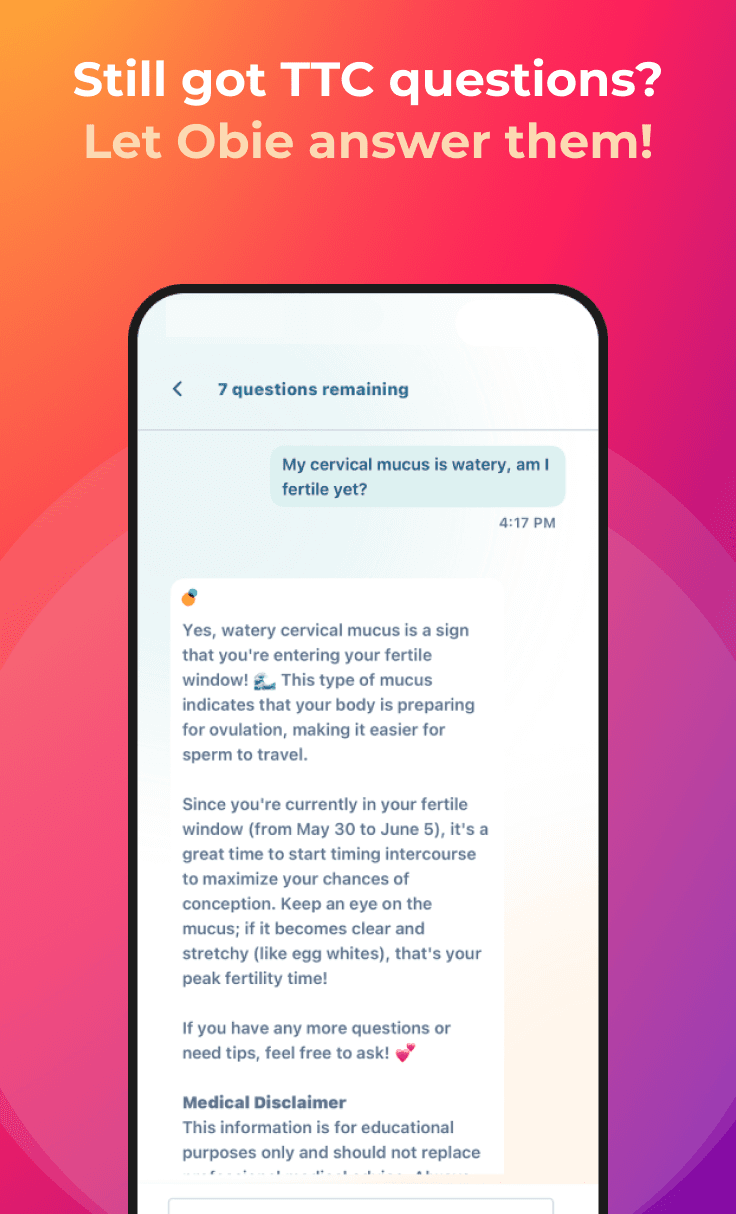Infertility Testing
Infertility
Obie Editorial Team
On your first visit to an infertility specialist there are several procedures and questions that are routine. If you have a menstrual cycle that is regular enough to pinpoint theapproximate time of ovulation you should schedule this first appointment for the first week of your cycle. It will also be helpful for you to have a record of the duration of your last several menstrual cycles. Additionally, if you have been recording your basal body temperature and the results of an ovulation predictor kit, you should bring those charts with you as well. All of these things will give your infertility specialist valuable information on your medical history.
Before the woman sees the infertility specialist for the very first time, it is important to know about his sperm count. Doing a sperm analysis prior to the first visit will answer a major question whether he has a normal count or not.
Your First Appointment
Scheduling your first appointment for the first week of your menstrual cycle is beneficial because it will allow your doctor to get a baseline reading of hormones such as LH and FSH. These hormone levels are very important to conception and your doctor needs to know if they are within normal ranges. Abnormally elevated FSH tests on cycle day 3 indicate a bad quality of the eggs. Other routine blood tests include tests for sexually transmitted disease for both partners. You will also undergo a complete physical exam, much like your annual gynecological exam.
Second Appointment
Scheduling is again important for this second appointment. You should schedule this appointment for the day your LH hormone increases. You will be able to detect this increase using a home ovulation predictor kit. When the LH hormone increases you will call and schedule your appointment for the same day. At this appointment you will likely have a cervical mucus test, an ultrasounds, and possibly additional hormone tests.
The cervical mucus test and postcoital test are generally performed at the same time. Prior to coming in for your appointment you will need to have intercourse with your partner to determine if the sperm are present and if they are able to move normally. Ultrasounds at this time are used to determine the thickness of the lining of the uterus, or endometrium. A thin lining can indicate a hormonal abnormality. The ultrasound can also be used to monitor the condition of the ovaries and uterus. Tumors, cysts, and abnormalities in the uterus can also be detected with an ultrasound. If you initial blood tests indicated abnormal hormone levels your doctor may order an Androgen Panel to further investigate the readings. Additional blood tests will also be done at this time.
Further Testing
If after the tests at your first two appointment your doctor is still unsure what is causing your fertility problems he or she will begin to consider other tests. The best test for evaluating the ovaries and for diagnosing endometriosis is laparoscopy. During this procedure the ovaries, uterus, and fallopian tubes are observed by inserting a small fiber optic telescope through the abdomen. This test is usually done a few days prior to the day menstruation is expected and only if tests indicate the woman is not pregnant. The hysterosalpinogram is used to evaluate the uterus and fallopian tubes. Dye is injected into the cervix, uterus, and fallopian tubes and is then monitored with an x-ray. This allows the doctor to see any obstructions or abnormalities.








